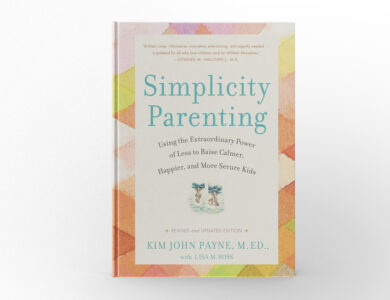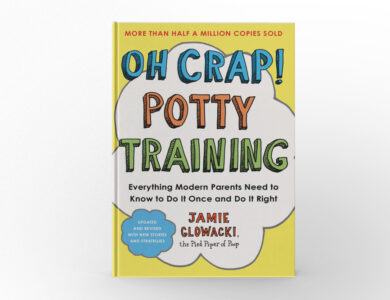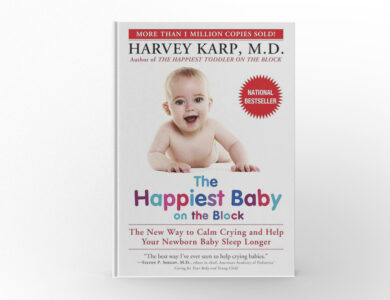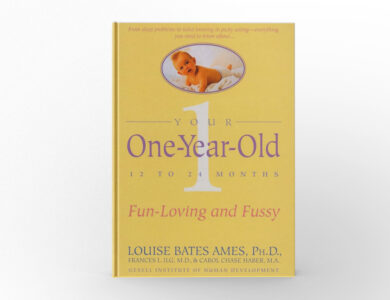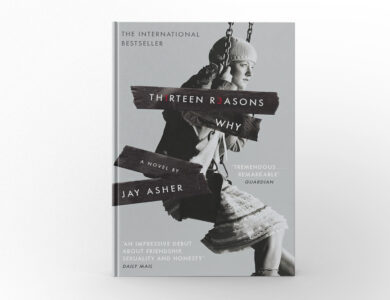Tiny Humans, Big Emotions by Alyssa Blask Campbell and Lauren Stauble
Tiny Humans, Big Emotions: Navigating Childhood Feelings with Empathy
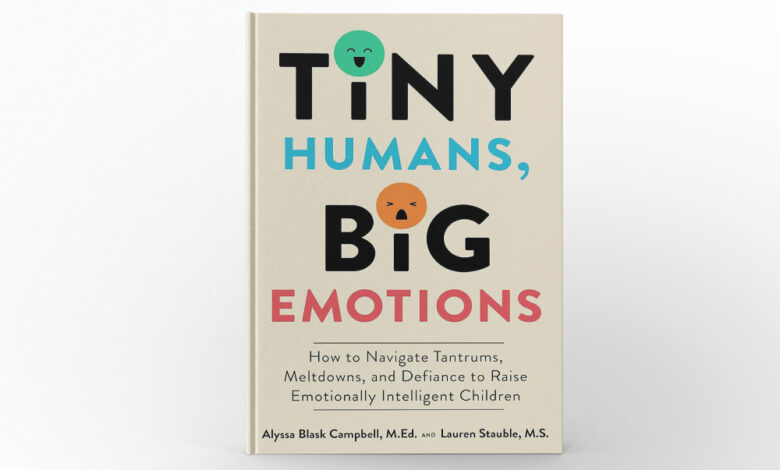
“Tiny Humans, Big Emotions” by Alyssa Blask Campbell and Lauren Stauble is an essential guide for parents and caregivers aiming to raise emotionally intelligent children. This book provides practical strategies for navigating tantrums, meltdowns, and other challenging behaviors, all while fostering emotional resilience. In this article, we will explore the various aspects of “Tiny Humans, Big Emotions,” providing an in-depth summary, examining its themes, and discussing its lasting impact and legacy.
Author’s Background
Alyssa Blask Campbell, M.Ed., and Lauren Stauble, M.S., are renowned experts in emotional development and early childhood education. Campbell, the founder of Seed & Sew, has dedicated her career to helping parents and educators understand and support children’s emotional needs. Stauble, with a background in psychology and education, has worked extensively with children and families to promote emotional well-being. Together, they bring a wealth of knowledge and experience to “Tiny Humans, Big Emotions,” offering readers a compassionate and research-backed approach to parenting.
In-Depth Summary
“Tiny Humans, Big Emotions” is structured to guide parents through the complexities of children’s emotional development. The book is divided into three main parts:
- Understanding Emotions: The authors begin by explaining the science behind emotions and why they matter. They emphasize that emotions are natural and necessary for healthy development. This section provides a foundation for understanding how children’s brains process emotions and the importance of validating their feelings.
- Collaborative Emotion Processing (CEP): This section introduces the Collaborative Emotion Processing (CEP) method, a revolutionary approach developed by Campbell and Stauble. CEP focuses on helping children recognize, understand, and manage their emotions through collaboration and empathy. The authors provide practical tools and scripts for handling common emotional challenges, such as tantrums, meltdowns, and defiance. They also offer strategies for creating a supportive environment that encourages emotional growth.
- Applying CEP in Everyday Life: The final section of the book offers real-life examples and case studies to illustrate how CEP can be applied in various situations. From bedtime resistance to school refusal, the authors provide step-by-step guidance on how to navigate these challenges with empathy and patience. They also discuss the importance of self-regulation for parents and caregivers, emphasizing that adults must model healthy emotional behaviors for their children.
Throughout the book, Campbell and Stauble stress the importance of connection and empathy in parenting. They argue that by understanding and validating children’s emotions, parents can build stronger relationships and foster emotional intelligence.
Themes and Insights
“Tiny Humans, Big Emotions” explores several key themes, including:
- Emotional Intelligence: The book emphasizes the importance of teaching children to recognize and manage their emotions, laying the groundwork for lifelong emotional resilience.
- Empathy and Connection: Campbell and Stauble highlight the role of empathy in parenting, arguing that understanding and validating children’s feelings is crucial for building strong relationships.
- Self-Regulation: The authors stress the importance of self-regulation for both children and adults, providing practical strategies for managing stress and maintaining emotional balance.
- Positive Discipline: The book advocates for a compassionate approach to discipline, focusing on understanding the underlying causes of challenging behaviors and addressing them with empathy and patience.
Personal Reflections
Reading “Tiny Humans, Big Emotions” was an enlightening experience that transformed my approach to parenting. The authors’ emphasis on empathy and connection resonated deeply with me, prompting me to reflect on my own interactions with my children. The practical tools and scripts provided in the book were incredibly helpful, offering concrete strategies for handling challenging moments with patience and understanding. The CEP method, in particular, was a game-changer, helping me to see tantrums and meltdowns not as problems to be fixed, but as opportunities for connection and growth. This book has not only improved my relationship with my children but has also helped me to become a more empathetic and self-aware parent.
Recommendation
“Tiny Humans, Big Emotions” is a must-read for parents, caregivers, and educators who want to raise emotionally intelligent children. Alyssa Blask Campbell and Lauren Stauble’s compassionate and research-backed approach provides invaluable insights and practical tools for navigating the complexities of children’s emotions. Whether you’re dealing with tantrums, meltdowns, or everyday emotional challenges, this book offers a roadmap for fostering empathy, connection, and emotional resilience.
Impact and Legacy
Since its publication, “Tiny Humans, Big Emotions” has had a significant impact on the field of early childhood education and parenting. The book’s success has led to widespread adoption of the CEP method, with parents and educators praising its effectiveness in promoting emotional intelligence. Campbell and Stauble’s work has sparked important conversations about the role of empathy and connection in parenting, challenging traditional approaches to discipline and emotional regulation.
The authors’ emphasis on understanding and validating children’s emotions has resonated with readers, making “Tiny Humans, Big Emotions” a cornerstone of modern parenting literature. The book’s practical tools and compassionate approach continue to inspire parents and educators to prioritize emotional well-being in their interactions with children.
Conclusion
In conclusion, “Tiny Humans, Big Emotions” by Alyssa Blask Campbell and Lauren Stauble is a powerful and transformative guide to raising emotionally intelligent children. Its exploration of themes such as empathy, connection, and self-regulation, combined with its practical tools and compassionate approach, make it a standout work in the field of parenting literature. Whether you’re revisiting the book or discovering it for the first time, “Tiny Humans, Big Emotions” offers invaluable insights and strategies for fostering emotional resilience and well-being in children.

